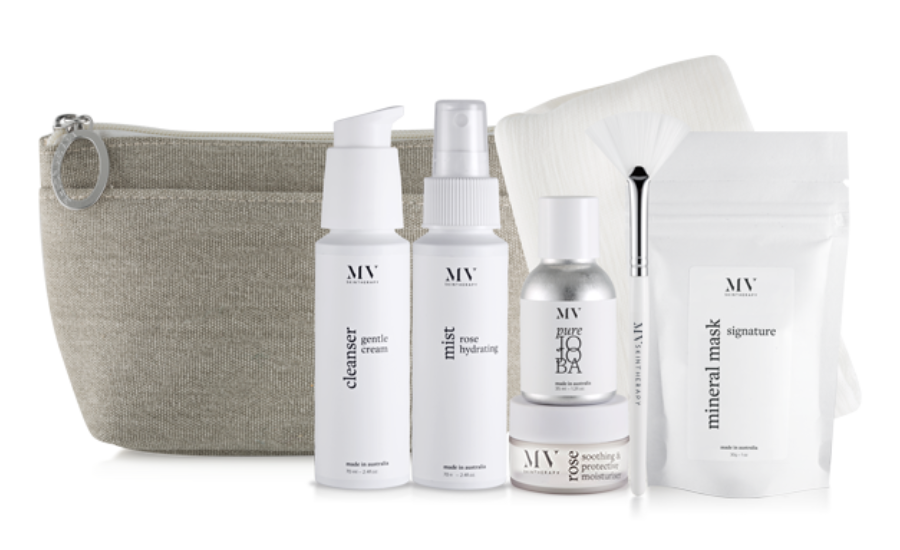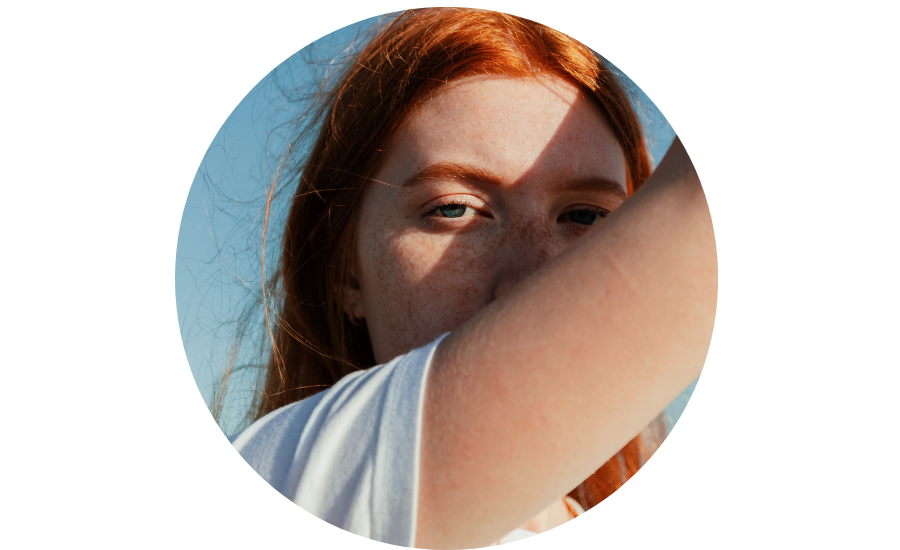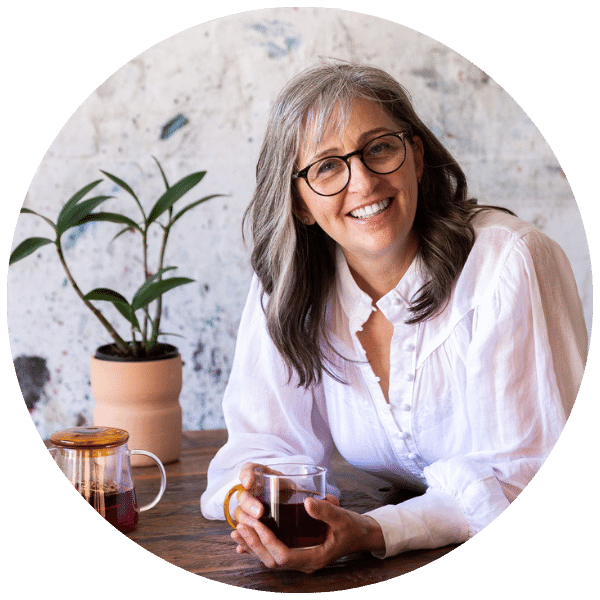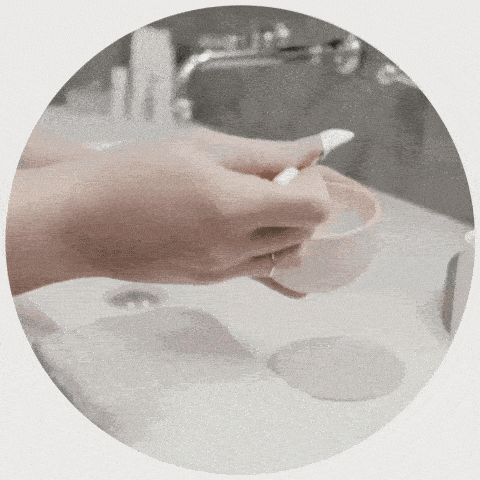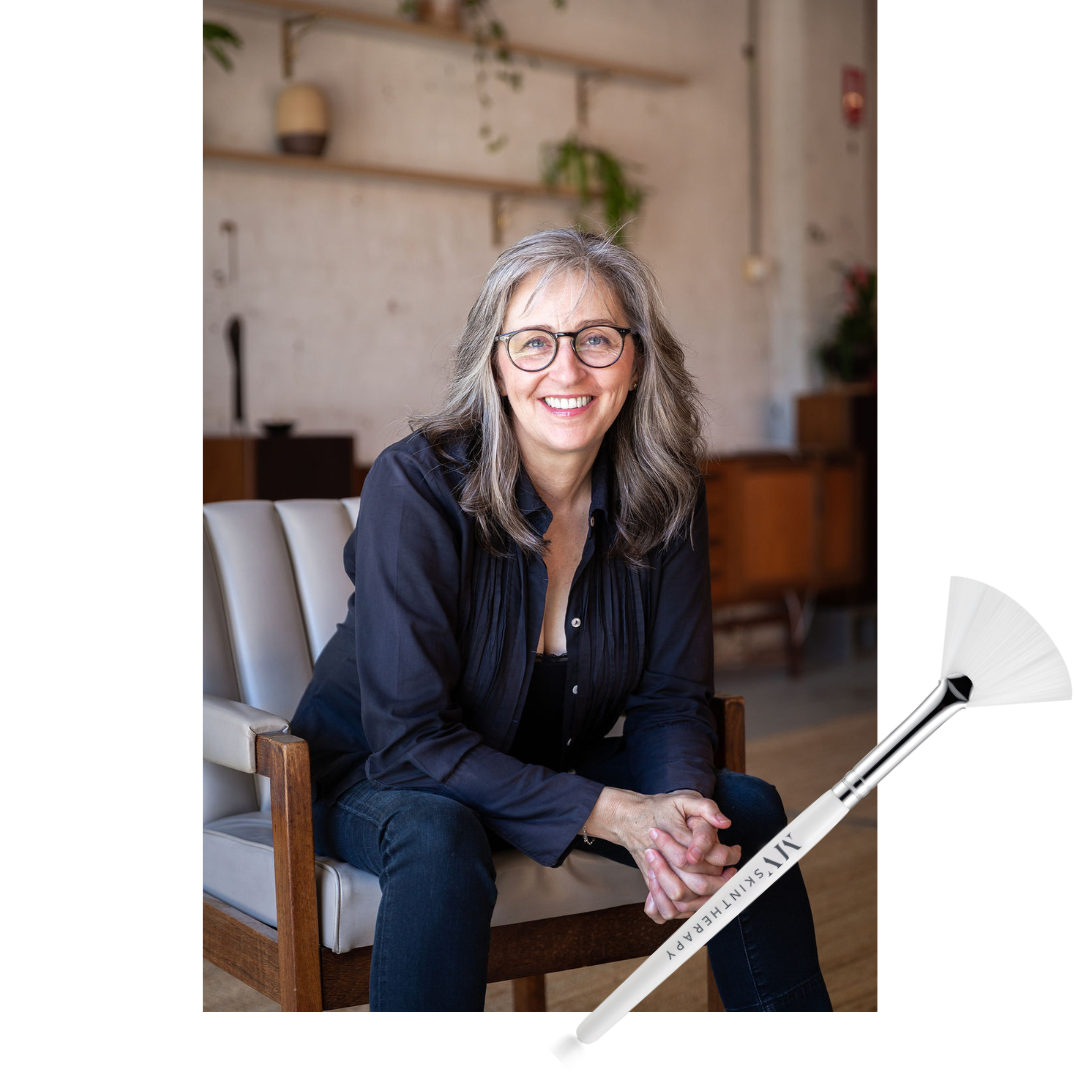

Everything You Need to Know about Rosacea According to MV founder Sharon McGlinchey
A common skin condition typically affecting those aged between 30 and 50, rosacea is marked by redness, flushing, and at times, pimples and pustules on the face. It’s not the same as acne and it isn’t contagious, but it can be irritating and certainly make you feel self-conscious if left untreated.
We've quickly quizzed celebrity skin therapist and MV Skintherapy founder Sharon McGlinchey (aka our fearless leader!) to learn more about the condition, which effects an estimated 415 million people globally.
What are the most common misconceptions people have about rosacea?
In my experience, a common misconception is that there must be one main reason when in reality it is a combination of many contributing factors. We all like a simple answer or a 'quick fix' but that's not how it works with rosacea.
What is the biggest mistake people with rosacea are making?
This is a two-fold answer and it's for those who have been diagnosed by a dermatologist. The first is taking low dose antibiotics long term - even when it's clear they are not working on advice from said dermatologist or their beauty therapist – and second is using a daily SPF. One of the most irritating skincare products for those with rosacea is often sunscreen! This is because some of the world's most irritating cosmetic ingredients are chemical UV absorbers.
What are mainstream skincare brands getting wrong in their treatment of rosacea?
Mainstream brands tend to use far too many ingredients and the bulk of these ingredients are chemicals and synthetics. Not ideal on both counts.
For those dealing with rosacea, what is ONE piece of advice or tip you think is the most transformational and important?
This is another two-fold answer, but it's one I always give to my clients with rosacea. Avoid using TOO MANY products and avoid the daily use of harsh foaming cleansers and skincare containing common cosmetic 'acids' which promote exfoliation.
AHAs and BHAs may be fine on normal and quite robust skin, but they are far too irritating to those with rosacea and washing with stripping foaming cleansers compromises the skin’s natural protective barrier.
Everyone is talking about the skin's microbiome and barrier impairment these days, but I've been banging on about this for over 24 years!
Is Rosacea affected by weather? For example, does living in a dry or humid climate have an impact?
Rosacea is most definitely affected by the weather because heat or over-heating exacerbates the problem. A dry climate is not ideal either because this can dehydrate the skin and those with rosacea really need to up their water intake and use products that help hold moisture in the skin. This is why hyaluronic acid is such a great ingredient, but you have to be wary of all the other ingredients commercial skincare brands add. The simplest formulations are the best.
Why do you recommend that rosacea sufferers NOT wash their face in the shower? Does the same apply for swimming?
Swimming is fine especially if it's in salt water, which can actually have a soothing effect on the skin. Tap water does contain contaminants and, depending where in the world you live, your water supply can feel a lot more drying on the skin.
The amount of tap water that runs over your face during a shower is significant and if you then add a foaming cleanser to the mix, a sensitive skin sufferer will emerge from a shower with a red and blotchy face that feels very tight. Daily micro-irritation is cumulative and exacerbates rosacea.
Do you have any client success stories you can share with us regarding rosacea?
As a hands-on therapist for over 2 decades, I do have many hundreds of success stories but the stand out for me is a woman who came to my East Sydney clinic back in the early 2000s not long after I launched MV. This woman was at that time one of Australia's leading Beauty Editors and had worked for several of the big glossy publications. In her position as Beauty Editor she had access to every product on the market for rosacea including prescription topical creams and the latest skinceutical products out of the US, but NOTHING had worked for her.
I might add, this was quite a severe case of rosacea so she was blown away by the improvement to her skin in only a few short weeks. She continued to visit me on a regular basis for facials as my skin treatment was the only one she'd ever had since developing rosacea that didn't leave her skin even more red and angry and worsen her condition. To this day, we still receive online orders from this woman so clearly, after almost 20 years, MV is still working for her and keeping her rosacea under control.
If you could only recommend ONE product, what would it be and why?
MV's Pure Jojoba is the one product everyone with rosacea should try. Why? Because it is THE most 'skin compatible' natural ingredients in the world. In my 25 years of working with jojoba oil (which is not an oil at all), I have rarely heard of anyone reacting badly to this unique liquid wax. And because we use certified organic jojoba, this guarantees no pesticide or chemical residue so it's a very pure and simple ingredient. This is exactly what a rosacea sufferer needs, something simple, pure, nonreactive that can perform multiple tasks and by 'multiple tasks' I mean, you can both cleanse and moisturise with jojoba.
As a chronic or lifelong condition, treating rosacea is the first step to managing ongoing symptoms that have the potential to worsen over time if left untreated. The good news is simple fixes like swapping out your skincare, knowing your triggers and avoiding them all go a long way to get rosacea under control.
For more skincare tips, check out our blog or shop our rosacea friendly products.
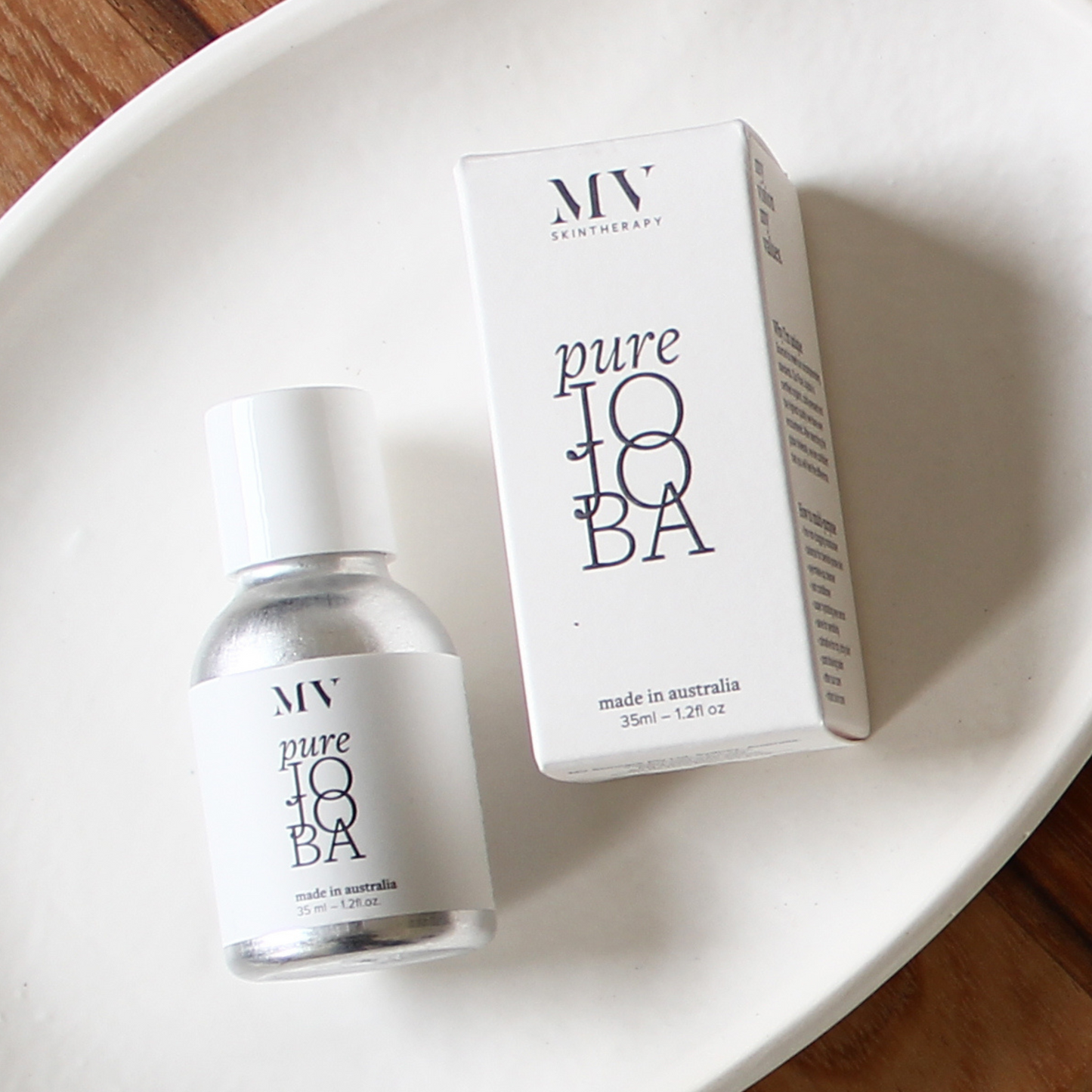
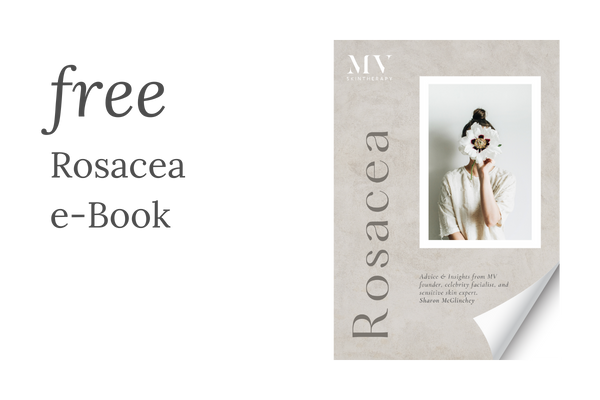
Sharon's Personal Program
Your free resource
My approach to treating rosacea affected skins is simple and kind. It focuses on calming inflammation, reducing redness and breakouts, strengthening the delicate skin-barrier, and providing ongoing daily protection.
I've had great success using this method, and I'm confident that you will too. In this guide I'll share some rosacea wisdoms, as well as my personal rosacea treatment program. This outlines daily & weekly steps that will not only transform your skin, but introduce you to the art of ritual & selfcare, every day.
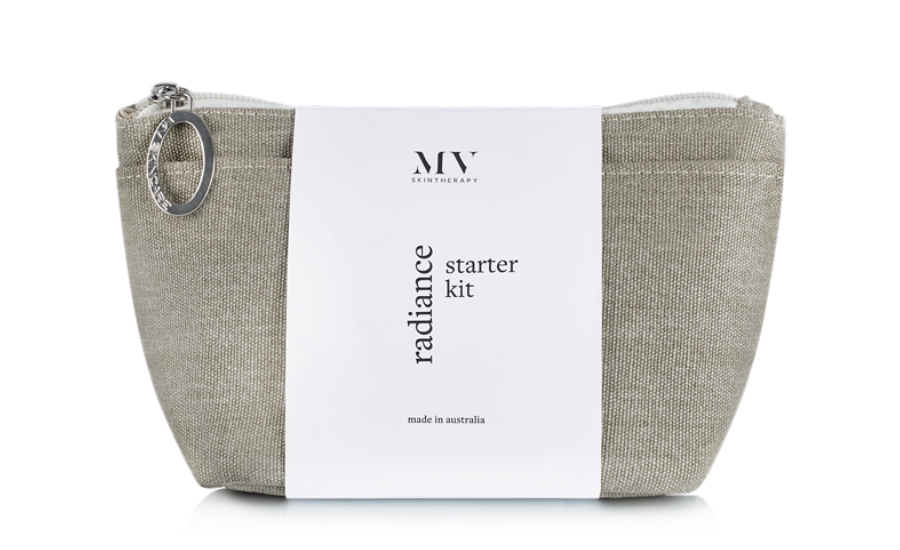
The Radiance Starter Kit
The contents of The Radiance Starter Kit contain all the core products that I consider foundational to the management of all inflammatory skin conditions, including Rosacea.

